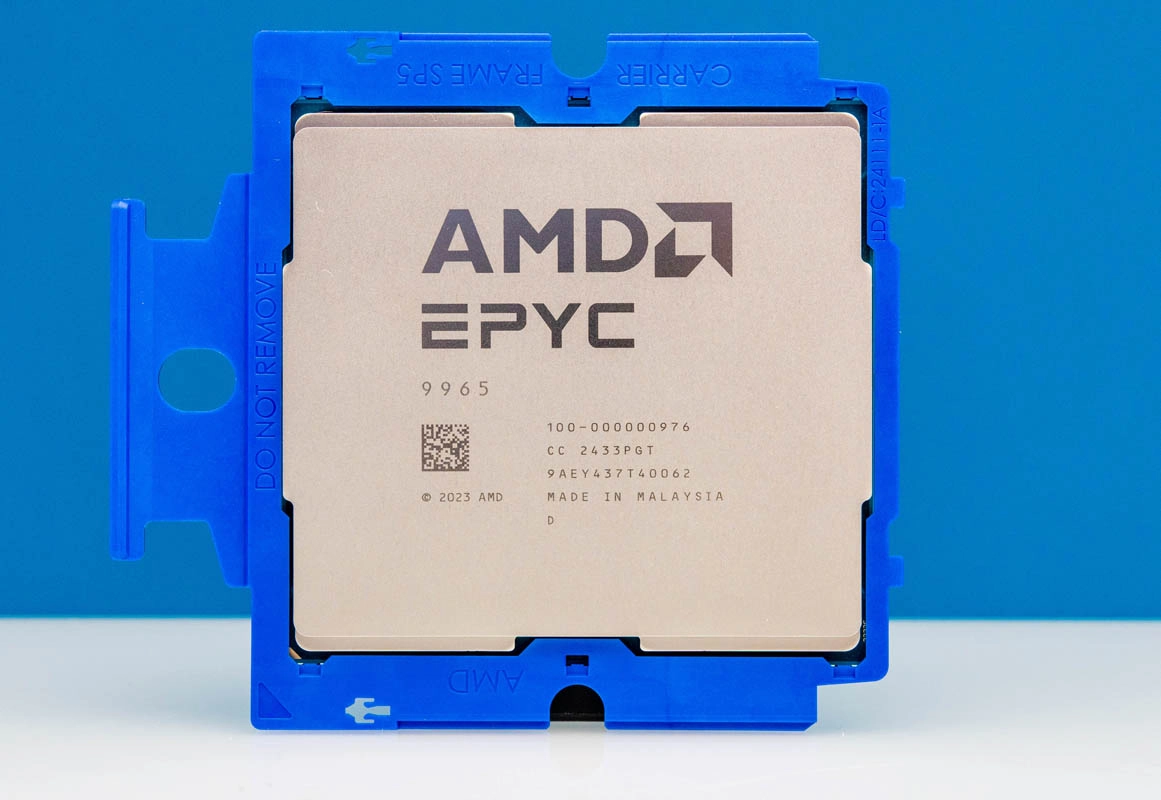For many years, the focus in the server world has shifted significantly. While much emphasis has been placed on the hardware costs associated with new processors, the often-overlooked component has been the virtualization license costs. This exploration began when a popular barebones server was acquired alongside a widely sold server processor from Newegg. This led to a broader discussion within the team regarding potential savings on licensing, culminating in new content dedicated to this topic appearing on the site in the coming weeks.
The journey commenced with the purchase of the Gigabyte R113-C10, a top-selling barebones server which came with the AMD EPYC 4464P processor. This combination, initially priced at $899 (now $925), presented an approximate 15% savings compared to purchasing the components separately—$633 for the server and $429 for the CPU. The system was outfitted with varying configurations, eventually leading the team to consider this setup as a formidable virtualization platform thanks to its 12-core and 24-thread specifications.
Once operational, the discussion shifted towards how newer processors, especially the AMD EPYC 4464P and its counterparts, are exceptionally well-optimized for virtualization tasks. The examination quickly grew from a focus on a single low-cost system to a wider inquiry into the cost implications of server licensing.
Server licensing can be intricate, as various applications and features follow different licensing and support models. To illustrate this complexity, a brief table was presented showing various server licensing structures ranging from free open-source solutions to proprietary options. Understanding these models is crucial, especially since the performance per core can significantly affect licensing costs.
For instance, considering how the AMD EPYC 4464P, with 12 cores and a 65W thermal design power (TDP), performs in virtualization scenarios under load proves to be economically beneficial. It consumes less energy while delivering competitive performance against its closest rivals, indicating the trend of seeking efficiency in modern processors to decrease overall costs, including licensing expenses.
In the research, comparisons were made between historical and newer CPUs, revealing that while legacy processors had their place, newer iterations outperform them in both core efficiency and overall capability within the same licensing contexts. The efficient utilization of CPU cores directly translates into financial savings by reducing the required number of licenses.
Ultimately, the shift in the server landscape to encompass both hardware performance and software licensing is underscored by the evolving needs of virtualization environments. Adopting systems like the AMD EPYC 4464P not only fulfills performance requirements but also offers substantial savings and optimizations in licensing, making them appealing choices for modern server deployments.
ColoCrossing excels in providing enterprise Colocation Services, Dedicated Servers, VPS, and a variety of Managed Solutions, operating from 10 data center locations nationwide. We cater to the diverse needs of businesses of any size, offering tailored solutions for your unique requirements. With our unwavering commitment to reliability, security, and performance, we ensure a seamless hosting experience.
For Inquiries or to receive a personalized quote, please reach out to us through our contact form here or email us at sales@colocrossing.com.

